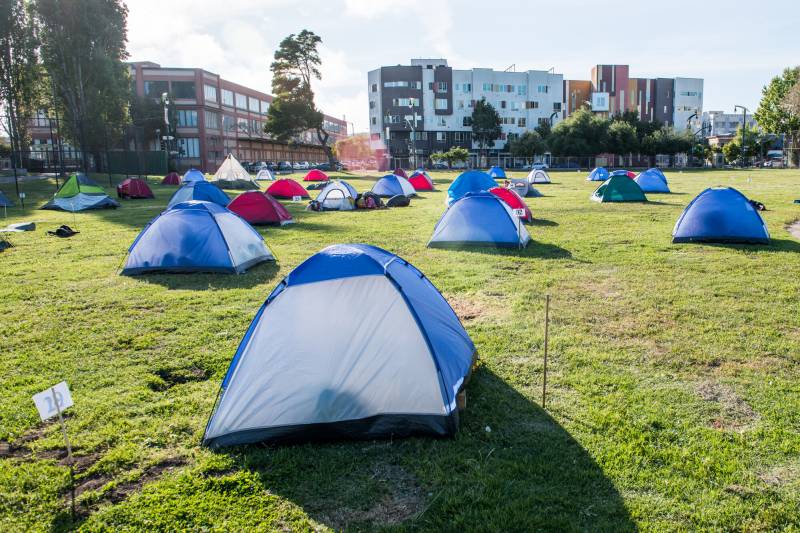The shift comes as city officials on Monday began clearing encampments in the Mission, Potrero Hill and Lake Merced neighborhoods following an announcement from Breed last month that “very aggressive” sweeps would begin in August.
Jennifer Friedenbach, director of the Coalition on Homelessness, criticized the city’s approach of more aggressive sweeps and said the solution to homelessness is preventing it in the first place.
“We have over 700 vacant units in San Francisco that are permanent supportive housing that we’re paying a lot of money for. We need to fix our broken housing placement system,” she said. “So there’s a number of steps that the city should be working on that would vastly improve the humanitarian crises that folks are facing on the streets.”
Between Monday and Wednesday, the city’s Healthy Streets Operations Center reported removing 75 tents and four structures from public spaces. Nine people accepted housing.
Last week, Gov. Gavin Newsom issued an executive order directing state agencies to dismantle encampments and encouraging cities to follow suit, citing a June decision by the Supreme Court granting local jurisdictions more power to crack down on unhoused encampments.
Following the ruling, a federal magistrate judge lifted a temporary order blocking the city from arresting unhoused people who refused to move when no shelter was available, which was put in place in 2022 as a lawsuit by the Coalition on Homelessness worked its way through the courts. Though the city could and did continue to clear encampments despite the order, its lifting seems to have renewed Breed’s efforts to do so.
Friedenbach said that during the sweeps, the city was violating its own “bag and tag” policies by throwing away the belongings of unhoused people.
“The Supreme Court removed that requirement so cities could just cite and arrest — they don’t have to offer shelter first — but that did not change anything with regards to illegal property confiscation,” Friedenbach said. “It is still illegal to take property out of someone else’s hands against their will.”
During a meeting of the Homelessness Oversight Commission on Thursday, Commissioner Christin Evans said that when people have their property taken, they often lose important belongings like identification documents, medications and safety gear.
“It makes it harder for us to do our job and get them to a safe and stable exit from homelessness. The mayor’s policy is making our job harder,” she said.
KQED’s Christopher Alam contributed to this report.

